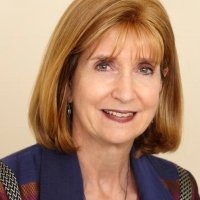A Matter of Survival: Learning to Cooperate over Water
Meeting our global water challenges is no ordinary task: it is a matter of survival. As global climate patterns shift, access to clean water will become more challenging; water will grow scarcer in some places, while others will suffer from too much. The Global High-Level Panel on Water and Peace, convened by a coalition of 15 countries, has developed a set of recommendations designed to prevent water-related conflicts and to enable water management be an instrument of peace, not war.
In this discussion with President Danilo Türk, Chair of the Panel on Water and Peace and former President of Slovenia, leaders from the U.S. and around the world share their insights on water and peace, and bring into focus the new U.S. Global Water Strategy. This high-level, half-day event provided an opportunity for U.S. water sector leaders to spur actionable partnerships and innovative, integrated solutions to the global water challenge.
Selected Quotes
President Danilo Türk
“The international water cooperation has not progressed sufficiently. The transboundary water cooperation of the world’s shared rivers and lake basins are still much below what is needed.”
“Water issues do not exist in isolation. They are linked with issues of energy, food, and environmental sectors. Policies of each of them are often designed without full appreciation of other sectors.”
“Peace in our era means much more than mere absence of war among states. Peace today requires strong and sophisticated tools for security and cooperation.”
“Water security and wise resources of water management represent the cornerstone of global conflict prevention.”
Sundeep Waslekar
“Is water the oil of the twenty-first century? I say definitely not. Oil has alternatives – natural gas, wind energy, solar energy, bioenergy. The only alternative to water is water, and therefore, the matter of water is a matter of survival.”
Ambassador Paula Dobriansky
“[Water] has been manipulated – it’s been used by terrorists – and in that sense, there is a need to make those linkages, and to try to take concrete action to fix it.”
H.E. Pio Wennubst
“Who we don’t have on board is the youth. We have to move onto the future.”
Alvaro Umaña Quesada
“We found out that the mechanisms, the methods, the procedures that are applied at the international level are also applicable at the local level…Water is inherently a local issue.”
Sherri Goodman
“We see increasing global water stress affecting national security, human security, and the very element of survival.”
“Increasingly, the transboundary water issues are not just about surface water, but about ground water and aquifers, and that means we need to think about new governance mechanisms and update our approaches from the past.”
“We need to find a way to leverage [data] capabilities and begin to use them in service of greater hydro-diplomacy in key strategic regions.”
Aaron Salzberg
“There are millions of people that still lack access to safe drinking water and sanitation. The lack of access to these basic services is not only a threat to the health and economic wellbeing of people throughout the world, but these conditions can also increase migration pressures, promote civil unrest, and contribute to terrorist recruitment.”
“Countries that are important to the United States might not have the water they need, and may as a result of that, become increasingly fragile and more prone to failure.”
“As water resources become scarce, confrontation will increase, and this will exacerbate tensions in already conflict-prone regions of the world.”
“It’s really at the grassroots level that you see cooperation emerge in more creative ways…The processes that local communities are building in order to solve their disputes at their level is really quite profound…It’s something we need to do more of.”
“If you can build the spirit of cooperation up at those levels, you’d be amazed at the political will that can create among national leaders to then take the steps that are necessary to reach an agreement.”
Gidon Bromberg
“[EcoPeace] is the only organization, in any field, that is Palestinian, Jordanian and Israeli together. And that really speaks miles as to how important water is as a resource that can create opportunities.”
“When I look at our part of the world – the eastern Mediterranean – I’m extremely fearful. I see a situation where governments are not taking water issues as seriously as they need to.”
“Water can be a critical entry point to promote cooperation when there are very few entry points that allow cooperation.”
"No country can do it alone. The water insecurity of yourself is not the only issue you need to look at. Every country needs to look at the water insecurity of their neighbor as something that threatens their own national security.”
“Two million people in Gaza have run out of drinking water. The fact that two million Palestinians don’t have any security for their basic water needs is a threat to the national security of Palestinian Authority, of Israel, of Egypt, and the broader Middle East. And the realization that we’re literally in the same boat together has motivated some change.”
“You can’t disconnect from a shared environment.”
“Unilateralism cannot work. Only focusing on control without focusing on fair share also will not create the right motivation to deal with solving transboundary issues.”
“We must include education for sustainability, for water security in our curriculum. And what better way to do that in a conflict setting than to bring people from the same basin together to learn about their interdependencies.”
“When young people come and see that, you know what, the political borders that our politicians talk about make no sense when it comes to our shared environment. Those political borders don’t stop the spread of disease or sewage. My neighbor not having sufficient water to drink is not something I’m comfortable with as a person sharing the same basin…That’s how you build political will.”
“We need to be the loudest voices in the room to help our leaders make these critical decisions that we need to promote the objectives of a more water secure, water-fair world.”
Gerald Galloway
“When you start talking about national security and climate change, you’re talking about national security and water.”
“Water is a web that spreads throughout every bit of society…It is not just water supply.”
“In many places, we can come up with wonderful solutions to water problems and deal with transboundary issues, but you have to look at the bottom. Have you solved the problem of the inequities that might exist over the use of that water at the lowest water? Is the farmer at the end of the irrigation canal going to get any water?”
“Information sharing is so critical.”
“You can’t deal with these sorts of issues unless everybody is at the table with the same information.”
“Leaders must know and understand the risks they face in the future with water…You’ve got to make sure that truth gets to power.”
Join the conversation on Twitter by following @NewSecurityBeat and find related coverage on our blog at NewSecurityBeat.org.
RELATED CONTENT:
- The “Most Important Issue We Face”: New U.S. Global Strategy for Water Emphasizes Health and Security
- What Does It Take to Cooperate? Transboundary Water Management Around the World
- Backdraft #5: Ken Conca on the Good, Bad, and Ugly of Water Conflict and Cooperation
Speakers

Senior Fellow, Harvard University Belfer Center; former Under Secretary of State for Global Affairs; Founder and Co-Chair of the US Afghan Women's Council


Author, Threat Multiplier: Climate, Military Leadership & the Fight for Global Security.

Former Director of the Water Institute at the University of North Carolina
Hosted By

Environmental Change and Security Program
The Environmental Change and Security Program (ECSP) explores the connections between environmental change, health, and population dynamics and their links to conflict, human insecurity, and foreign policy. Read more
